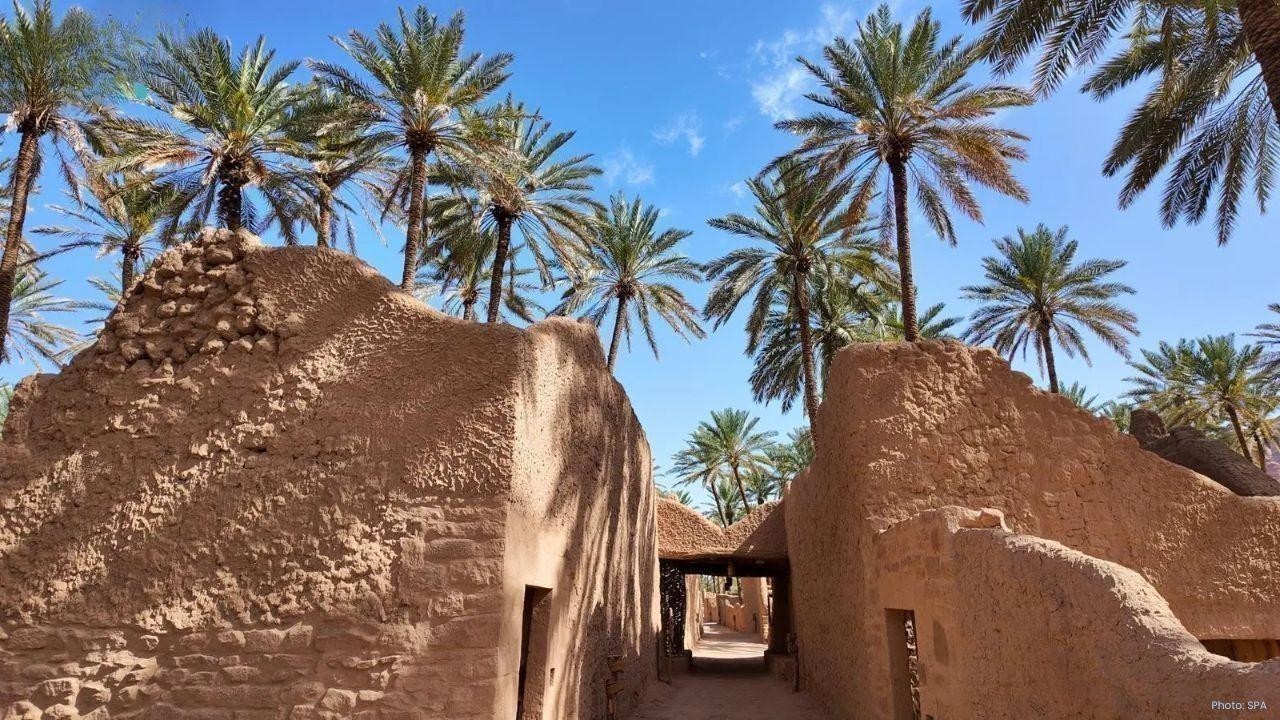
Post by : Zayd Kamal
The story of human civilization is a remarkable journey that stretches back thousands of years. Early humans were not only survivors, but they also created societies that laid the foundation for the world we live in today. These early civilizations formed the first great human cultures and shaped the course of history. In this article, we’ll explore the 5 first civilizations of early humans—the places where human history truly began.
Each of these civilizations made significant advancements in agriculture, writing, architecture, and governance, and their legacy continues to influence us today. Join us on this exciting historical journey to uncover how these ancient societies thrived and left their mark on the world.
Mesopotamia is often referred to as the "Cradle of Civilization" because it was one of the earliest regions where complex societies emerged. Located between the Tigris and Euphrates Rivers in what is now modern-day Iraq, Mesopotamia gave birth to some of the first cities in human history, such as Ur, Babylon, and Sumer.
The people of Mesopotamia developed groundbreaking innovations like the cuneiform writing system, which is considered one of the earliest forms of written language. This allowed them to document laws, trade, and historical events. Mesopotamians also advanced in mathematics, astronomy, and agriculture. They built impressive structures such as ziggurats, large temple complexes that served as both religious and administrative centers.
Despite facing constant invasions and shifting power dynamics, Mesopotamia’s cultural and technological contributions were foundational to later civilizations. The first civilization of early humans made a lasting impact on the world, from the idea of cities to the basics of governance.
Located along the Nile River, Ancient Egypt is one of the most famous early civilizations in history. Known for its rich culture, monumental architecture, and powerful rulers like Cleopatra and Ramses II, Egypt thrived for thousands of years. The Egyptians were master builders, and their iconic pyramids and temples continue to awe visitors to this day.
Egyptians were pioneers in many areas, including mathematics, medicine, and engineering. They created a calendar based on the cycles of the moon and the stars, which helped them track the seasons and improve agricultural practices. The Egyptians also developed hieroglyphics, a system of writing that was used for religious texts and official documents.
One of the most notable aspects of Ancient Egypt was its religion. The Egyptians believed in a pantheon of gods, and their rulers, the pharaohs, were considered gods themselves. The famous pyramids were built as tombs for these powerful rulers, and they symbolize the Egyptians’ belief in life after death.
The Indus Valley Civilization, also known as the Harappan Civilization, was located in what is now Pakistan and northwest India. Although this civilization was one of the largest in the ancient world, much of its history remains a mystery because much of its written language has not yet been deciphered.
The Indus Valley people were incredibly advanced for their time, developing sophisticated urban planning and impressive drainage systems. The cities of Harappa and Mohenjo-Daro, the two most prominent cities in the civilization, featured well-organized streets and public baths. This level of urban planning was unmatched by many contemporary societies.
The Indus Valley Civilization also had a thriving trade network, with evidence showing that they traded goods with Mesopotamia and other ancient civilizations. Despite its remarkable achievements, the Indus Valley mysteriously declined around 1900 BCE, and its exact cause is still debated by historians and archaeologists.
Ancient China is one of the longest continuous civilizations in history, with roots going back over 4,000 years. The first civilization of early humans in China is often associated with the rise of the Xia Dynasty around 2100 BCE. However, it was during the Shang and Zhou dynasties that China truly flourished.
The Chinese developed important inventions like paper, the compass, and gunpowder—many of which had a profound impact on global history. Chinese writing, which evolved from pictograms, is one of the oldest written languages still in use today. They also pioneered advancements in philosophy, particularly through the teachings of Confucius, whose ideas on ethics and government shaped Chinese society for centuries.
Ancient China’s agricultural achievements were remarkable. The people of ancient China created vast irrigation systems, which allowed them to cultivate rice and other crops on a large scale. This led to population growth and the formation of large, centralized states ruled by dynasties.
In the Americas, the Olmec Civilization is considered the "mother civilization" of Mesoamerica, influencing later cultures like the Maya and Aztec. The Olmecs thrived in what is now Mexico around 1200 BCE to 400 BCE. Although their cities were smaller than those of Mesopotamia or Egypt, the Olmecs made significant contributions in art, religion, and writing.
One of the Olmecs' most iconic achievements is the creation of the colossal stone heads that have fascinated archaeologists for centuries. These heads are believed to represent Olmec rulers and have become a symbol of their powerful civilization. The Olmecs also developed a form of writing and created one of the earliest known calendars in the Americas.
Although the Olmec civilization declined, their cultural influence remained strong throughout Mesoamerica, and their achievements paved the way for later civilizations in the region.
The 5 first civilizations of early humans played a crucial role in shaping the world we know today. These ancient societies—Mesopotamia, Ancient Egypt, the Indus Valley Civilization, Ancient China, and the Olmec Civilization—introduced groundbreaking advancements in agriculture, writing, architecture, and governance. Mesopotamia, known as the "Cradle of Civilization," developed cuneiform writing and mathematics. Ancient Egypt’s pyramids and hieroglyphics showcased their advanced engineering and belief systems. The Indus Valley’s sophisticated urban planning and trade networks were ahead of their time. Ancient China’s technological innovations like paper and gunpowder had a lasting impact globally. Lastly, the Olmecs, considered the "mother civilization" of Mesoamerica, influenced later cultures with their artistic achievements. These civilizations’ contributions continue to influence modern society, and their legacies highlight the importance of innovation and cultural development in human history.
This article is for general informational purposes only and reflects historical interpretations that may evolve over time as new research and discoveries are made. The views expressed are based on current understanding and historical records available at the time of writing. By dxb news network.

China Eastern Resumes Shanghai-Delhi Flights After 5 Years
China Eastern Airlines restarts Shanghai-Delhi flights from Nov 9, marking a major step in India-Chi

UAE Triumphs Over Japan to Qualify for T20 World Cup 2026
UAE cricket team secures historic T20 World Cup 2026 spot with a strong win over Japan, marking thei

Fire Erupts at Dhaka Airport Cargo, Flights Temporarily Halted
A massive fire broke out in Dhaka airport's cargo area, halting flights. Firefighters battle blaze;

59 South Koreans Repatriated from Cambodia Over Online Scams
South Korea repatriates 59 nationals from Cambodia linked to online scams amid growing crackdown on

AlUla Marks Heritage Day with Living Traditions Revival
AlUla celebrated Heritage Day, showcasing timeless arts, crafts, and customs to keep its living trad

“No Kings” Protests US States Deploy National Guard Ahead of Rallies
National Guard troops activated as “No Kings” protests target Trump policies in over 2,500 US locati

Kohli, Rohit Return as India Gear Up for Australia ODIs
Virat Kohli and Rohit Sharma return to action as India take on Australia in a three-match ODI series

From Street Shawarmas to Sky Dining Dubai’s Food Adventure
Explore Dubai’s food wonders from sizzling street shawarmas to elegant sky dining where every flavo

7 Best International Destinations for Vegetarian Travellers Delicious & Travel Friendly
Discover 7 top international destinations for vegetarian travellers with delicious meals vibrant cul

Morning Habits of Highly Successful People Start Your Day the Smart Way
Discover the powerful morning habits of highly successful people and learn how starting your day rig

Beyond the Gym Dubai’s Outdoor Fitness Revolution on Beaches & Skylines
Explore Dubai’s outdoor fitness revolution on beaches and skylines blending health community and sce

AI in Dubai’s Luxury Salons Personalized Skincare Meets Technology
Discover how Dubai’s luxury salons use AI to create personalized skincare routines blending technolo

The $1 Million Secret Dubai’s Luxury Longevity Clinics and Personalized Wellness Revolution
Explore Dubai’s $1M longevity clinics offering luxury high tech treatments and personalized wellness

Pankaj Dheer The Timeless Villain Who Shaped Indian Television
Discover Pankaj Dheer’s legendary journey from iconic villain to timeless TV star inspiring generati

Best Whole Grains for Weight Loss Healthy Nutritious & Easy to Include
Discover the best whole grains for weight loss boost metabolism stay full longer and enjoy healthy n